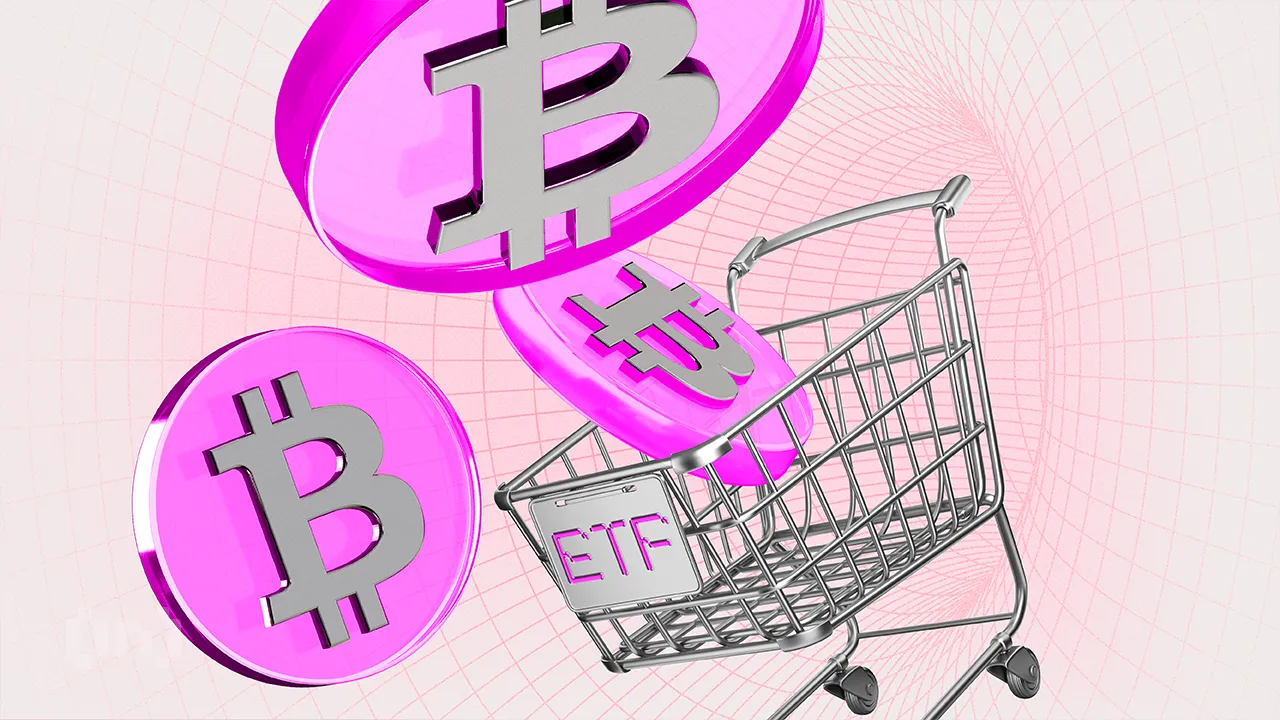Bitcoin
Bitcoin Not “The King” In The Dark Web Any More

Bitcoin was once considered the dominant currency in illicit transactions. However, it is now being replaced by privacy-focused cryptocurrencies like Monero (XMR), Zcash (ZEC), Dash, and stablecoins.
The primary reason for Bitcoin’s decline in illegal activities is its transparency.
Reasons for the Shift from Bitcoin to Privacy Coins
Bitcoin (BTC) once dominated illicit activities on the Dark Web, such as Nucleus Marketplace or Brian’s Club. The report from TRM Labs indicated that Bitcoin accounted for 97% of the total cryptocurrency volume associated with illegal activities in 2016.
However, by 2022, this figure had dropped sharply to just 19%, indicating a significant shift toward other cryptocurrencies.
According to the TRM Labs’ report, illegal cryptocurrency activities involving Bitcoin will drop to just 12% by 2024. Tron (TRX) holds the top position with 58%. In another report from Chainalysis, stablecoins now account for the majority of total illicit transaction volume at 63%. The use of Bitcoin in illegal activities also recorded a significant decline.
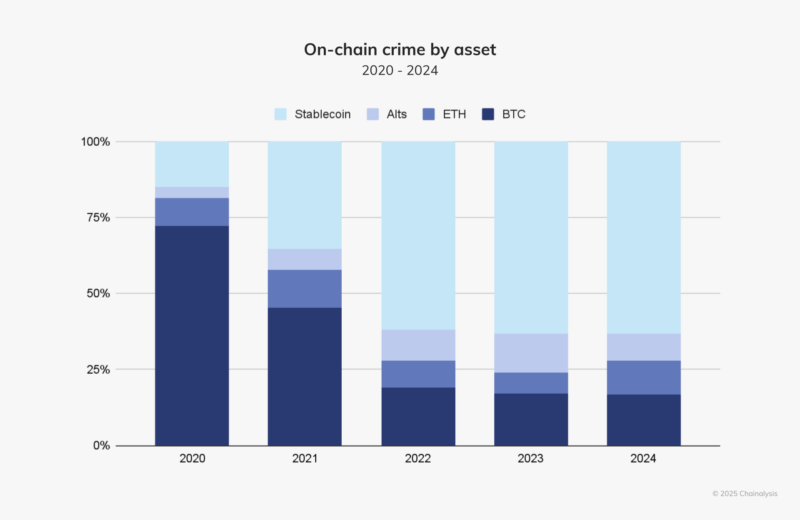
White House Market, one of the largest Dark Web marketplaces, stopped accepting Bitcoin and exclusively used Monero (XMR) for transactions in 2020.
“The Bitcoin workaround was supposed to be there just to help with transition to XMR and as we are concerned, it’s done, therefore we are now Monero only, just as planned,” stated White House Market.
Elliptic researchers uncovered $11 billion in illicit trades using USDT on Cambodia’s Huione Guarantee marketplace in July 2024. Japanese law enforcement tracked Monero, marking the country’s first arrest linked to Monero transaction analysis.
The decision was driven by Bitcoin’s limitations, particularly its blockchain transparency. This move reflected a strategic shift in Dark Web markets and highlighted the rise of privacy coins like Monero, which are designed to provide enhanced anonymity.
The Popularity of Privacy Coins on the Dark Web
The decline of Bitcoin in illegal activities is not coincidental but rather stems from its inherent limitations. First and foremost, Bitcoin’s blockchain is a public ledger. When combined with additional data such as IP addresses or exchange records, every transaction can be tracked.
This transparency has enabled law enforcement agencies like the FBI to use blockchain analytics tools from Chainalysis and Elliptic to dismantle major Dark Web markets. Examples include the Silk Road shutdown in 2013, AlphaBay in 2017, Hydra in 2022, and Incognito Market in 2024.
Additionally, Bitcoin faces technical challenges, including high transaction fees and slow confirmation times. In contrast, privacy coins like Monero, Zcash, and Dash leverage advanced technologies to ensure high levels of anonymity, making transaction tracking extremely difficult. The Research from ScienceDirect suggests that privacy coins are closely linked to Dark Web traffic, further increasing their popularity in illicit markets.
The Two Sides of the Shift to Privacy Coins
On the positive side, Bitcoin’s declining role in illegal activities may improve its reputation as a legitimate financial tool. This could lead to wider acceptance and attract more users and investors.
However, the shift from Bitcoin to privacy coins and stablecoins has made it more challenging for law enforcement agencies to track and prevent illegal transactions. Despite advanced blockchain analytics tools that can detect transaction trails through mixers and tumblers, dealing with Monero and other privacy coins remains a significant challenge.
Global regulators are increasingly scrutinizing privacy coins and stablecoins. Some countries have outright banned privacy coins, while stablecoins are subjected to stricter oversight.
The transition from Bitcoin to privacy coins and stablecoins on the Dark Web is a clear trend, driven by the growing demand for anonymity and efficiency in illicit transactions. While Bitcoin still plays a role in certain crypto-related crimes, its transparency makes it less attractive to the Dark Web.
Meanwhile, Monero, Zcash, Dash, and stablecoins have become the preferred choices due to their enhanced security and privacy. This trend poses significant challenges for law enforcement agencies while driving advancements in blockchain analytics tools.
However, it also raises concerns about using cryptocurrencies in illegal activities, necessitating a balance between technological innovation and regulatory oversight to ensure transparency and security in the digital financial ecosystem.
Disclaimer
In adherence to the Trust Project guidelines, BeInCrypto is committed to unbiased, transparent reporting. This news article aims to provide accurate, timely information. However, readers are advised to verify facts independently and consult with a professional before making any decisions based on this content. Please note that our Terms and Conditions, Privacy Policy, and Disclaimers have been updated.
Bitcoin
Bitcoin Adoption Grows As Public Firms Raise Holdings In Q1


Public companies have added nearly 100,000 Bitcoin to their balance sheets during the first quarter of 2025, pushing total corporate Bitcoin holdings to a staggering 688,000 BTC worth $56.7 billion. According to data from crypto fund issuer Bitwise, this represents a 16% increase in total crypto holdings by publicly traded companies.
12 New Corporate Buyers Enter The Market
The Bitcoin buying spree wasn’t limited to existing crypto investors. Twelve public companies purchased Bitcoin for the first time during Q1, bringing the total number of Bitcoin-holding public firms to 79.
Hong Kong construction firm Ming Shing led new buyers, with its subsidiary Lead Benefit acquiring 833 BTC through two separate purchases – an initial 500 BTC buy in January followed by 333 BTC in February.
Video platform Rumble ranked as the second-largest new buyer, adding 188 BTC to its treasury in mid-March. In a move that stunned market watchers, Hong Kong investment firm HK Asia Holdings Limited purchased just one Bitcoin in February – a modest investment that still caused its share price to almost double in a single day of trading.
Companies are buying bitcoin, Q1 2025 edition. pic.twitter.com/qZc62N8vu5
— Bitwise (@BitwiseInvest) April 14, 2025
Japanese Firm Acquires At A Discount
While new entrants made headlines, existing Bitcoin holders also strengthened their positions. Japanese investment firm Metaplanet announced on April 14 that it had purchased an additional 319 BTC at an average price of 11.8 million yen (about $82,770) per coin.
This latest purchase brings Metaplanet’s total Bitcoin holdings to 4,525 BTC, currently valued at approximately $383.2 million. The company has spent nearly $406 million (58.145 billion yen) building its crypto stack.
Based on current holdings, Metaplanet now ranks as the 10th largest public company crypto holder worldwide, sitting behind Jack Dorsey’s Block, Inc., which holds 8,480 BTC.
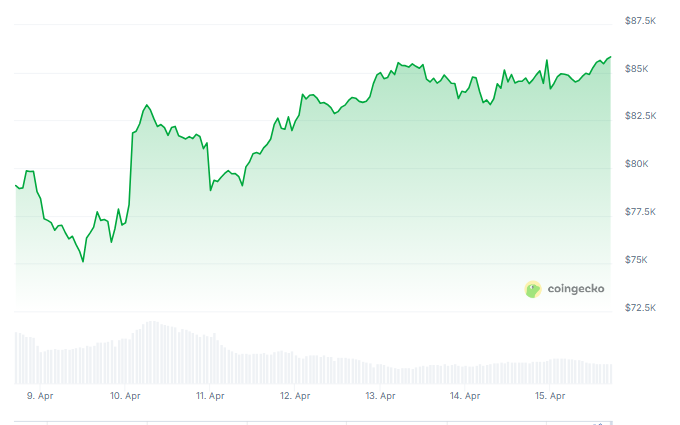
BTC reclaiming the green zone in the last week. Source: Coingecko
Bitcoin Price Recovers After Brief Slump
Bitcoin trades at around $85,787 as of April 15, showing a decent performance over the past 24 hours according to CoinGecko data. The cryptocurrency has gained roughly 2.5% since the end of Q1 on March 31.
The price has bounced back from a brief drop below $75,000 on April 7. That temporary decline came after a broader market selloff triggered by a new round of global tariffs announced by US President Donald Trump.
The growing corporate interest in the top crypto comes as more companies look to diversify their treasury holdings. The combined value of public companies’ Bitcoin rose about 2.3% during the first quarter, reaching nearly $57 billion with BTC priced at $82,400 by quarter’s end.
Featured image from Crews Bank, chart from TradingView

Editorial Process for bitcoinist is centered on delivering thoroughly researched, accurate, and unbiased content. We uphold strict sourcing standards, and each page undergoes diligent review by our team of top technology experts and seasoned editors. This process ensures the integrity, relevance, and value of our content for our readers.
Bitcoin
Bolivia Reverses Crypto-for-Fuel Plan Amid Energy Crisis


Bolivia’s Ministry of Trade and Imports has rejected a state-backed plan to use cryptocurrency for fuel imports.
This move, which marks a stunning policy reversal, signals a retreat from the government’s recent push to adopt digital assets as a workaround for dollar shortages.
Bolivia Rejects Crypto-for-Fuel Scheme Amid Energy Sector Turmoil
The initial plan, announced in March by Bolivia’s state-owned energy giant YPFB, aimed to use crypto to secure fuel imports. This was in response to acute shortages of both US dollars and refined fuel.
As reported by Reuters on March 13, the proposal had received government backing at the time.
But in a statement released Tuesday, Director of Trade and Imports Marcos Duran clarified that YPFB will not be permitted to use crypto for international transactions.
“YPFB must use Bolivia’s own resources and dollar-based financial transfers,” Duran said.
Head of digital assets at VanEck, Mathew Sigel, labels this a clear U-turn on crypto policy.
“U-Turn: Bolivia appears to back away from its crypto-for-fuel scheme,” Sigel quipped.
Disclaimer
In adherence to the Trust Project guidelines, BeInCrypto is committed to unbiased, transparent reporting. This news article aims to provide accurate, timely information. However, readers are advised to verify facts independently and consult with a professional before making any decisions based on this content. Please note that our Terms and Conditions, Privacy Policy, and Disclaimers have been updated.
Bitcoin
Bitcoin Poised for Summer Rally as Gold Leads and Liquidity Peaks

The crypto market and broader economy are moving fast as global liquidity reached an all-time high in April 2025. Gold has already broken past $3,200, setting a new record. Meanwhile, Bitcoin is still 30% below its previous peak.
Amid this backdrop, analysts are taking a closer look at the link between Bitcoin and gold. Fresh data also shows strong corporate demand for Bitcoin, with record levels of buying in Q1 2025.
What Bitcoin’s Ties to Gold and Liquidity Signal for Its Price
According to Joe Consorti, Head of Growth at Theya, Bitcoin tends to follow gold’s lead with a lag of about 100 to 150 days. A chart shared by Consorti on X, based on Bloomberg data, illustrates this trend from 2019 to April 14, 2025.
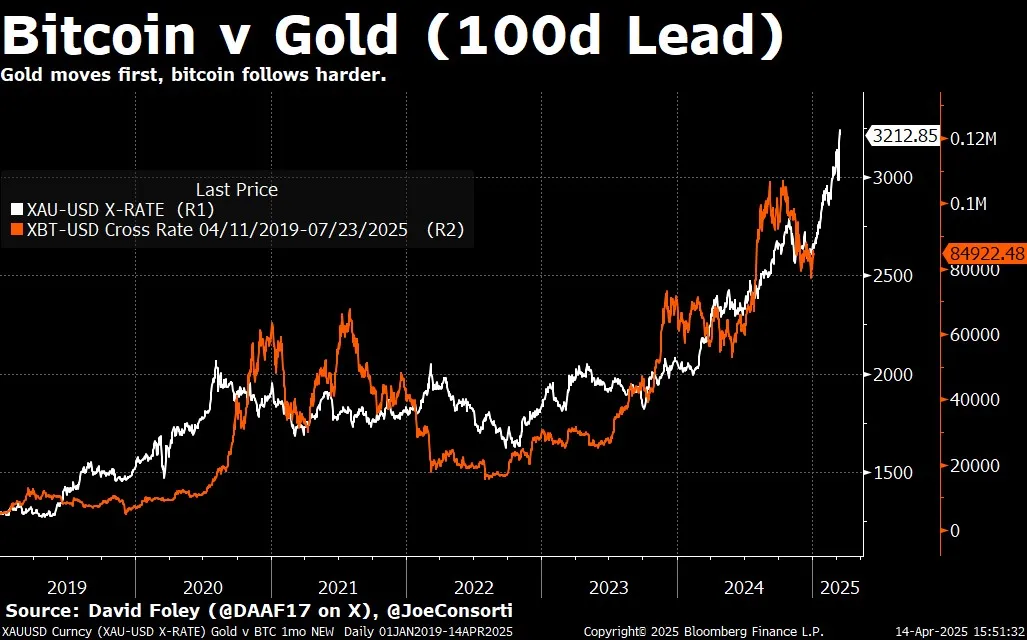
The chart shows gold (XAU/USD) in white and Bitcoin (XBT/USD) in orange. The data reveals that gold usually moves first during upswings, but Bitcoin often rallies harder afterward—especially when global liquidity is rising.
“When the printer roars to life, gold sniffs it out first, then Bitcoin follows harder,” Consorti said.
That 100-to-150-day lag is notable. It suggests Bitcoin could be set for a sharp move higher within the next 3 to 4 months. The recent surge in global liquidity also supports this view.
According to analyst Root, M2 money supply from major central banks—including the US Federal Reserve, European Central Bank (ECB), People’s Bank of China (PBoC), Bank of Japan (BoJ), Bank of England (BoE), Reserve Bank of Australia (RBA), Bank of Canada (BoC), and others—has hit a record high as of April 2025.
The sharp rise points to more cash flowing through the global economy.
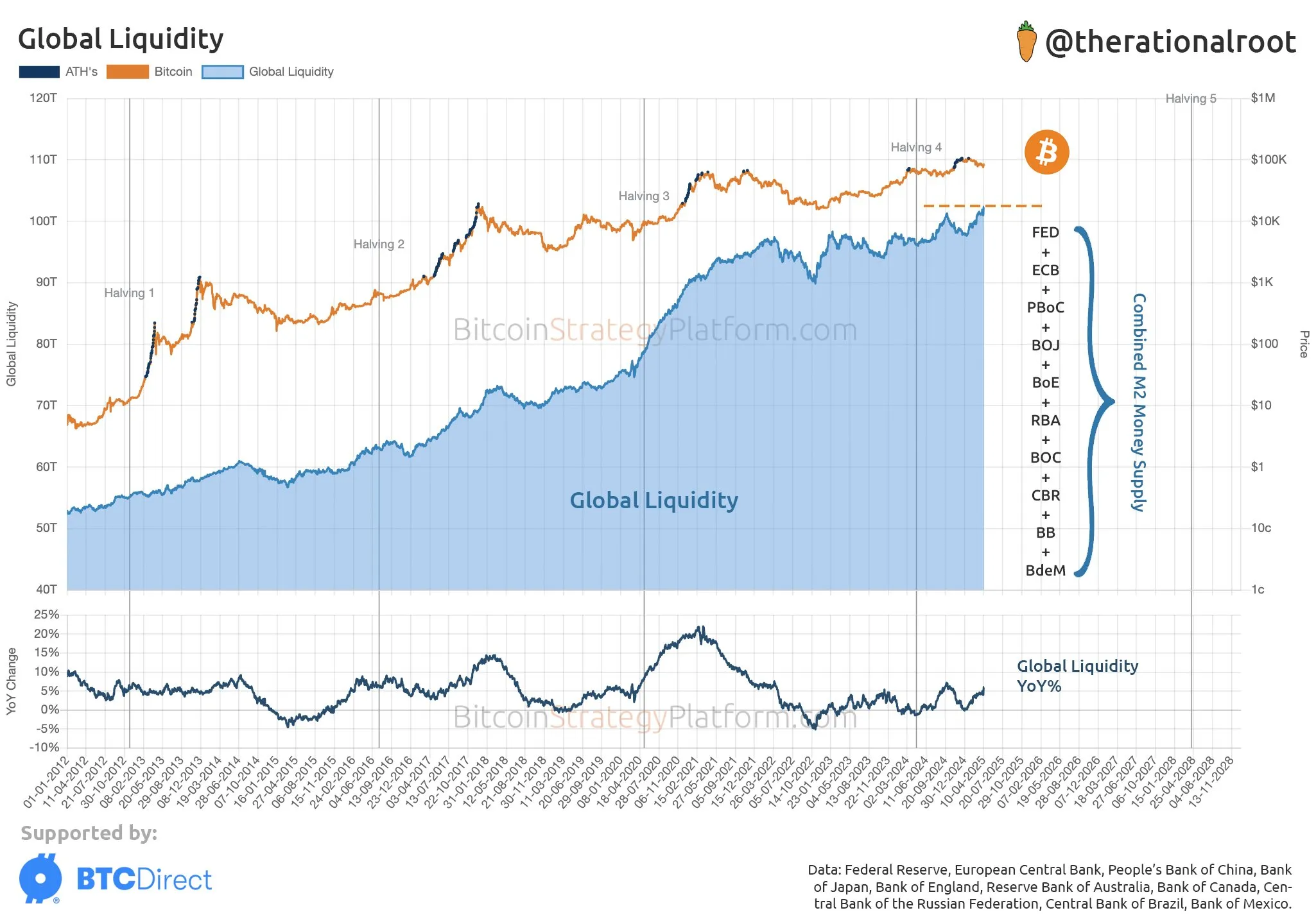
Historically, Bitcoin bull markets have often lined up with major increases in global liquidity, as more money in the system tends to push investors toward riskier assets like Bitcoin.
Why Bitcoin Might Outperform Gold and Stocks
Matt Hougan, Chief Investment Officer at Bitwise Invest, states that Bitcoin is not just outperforming gold but is also surpassing the S&P 500 in the long run. This indicates that Bitcoin is becoming a stronger investment option despite its price volatility.
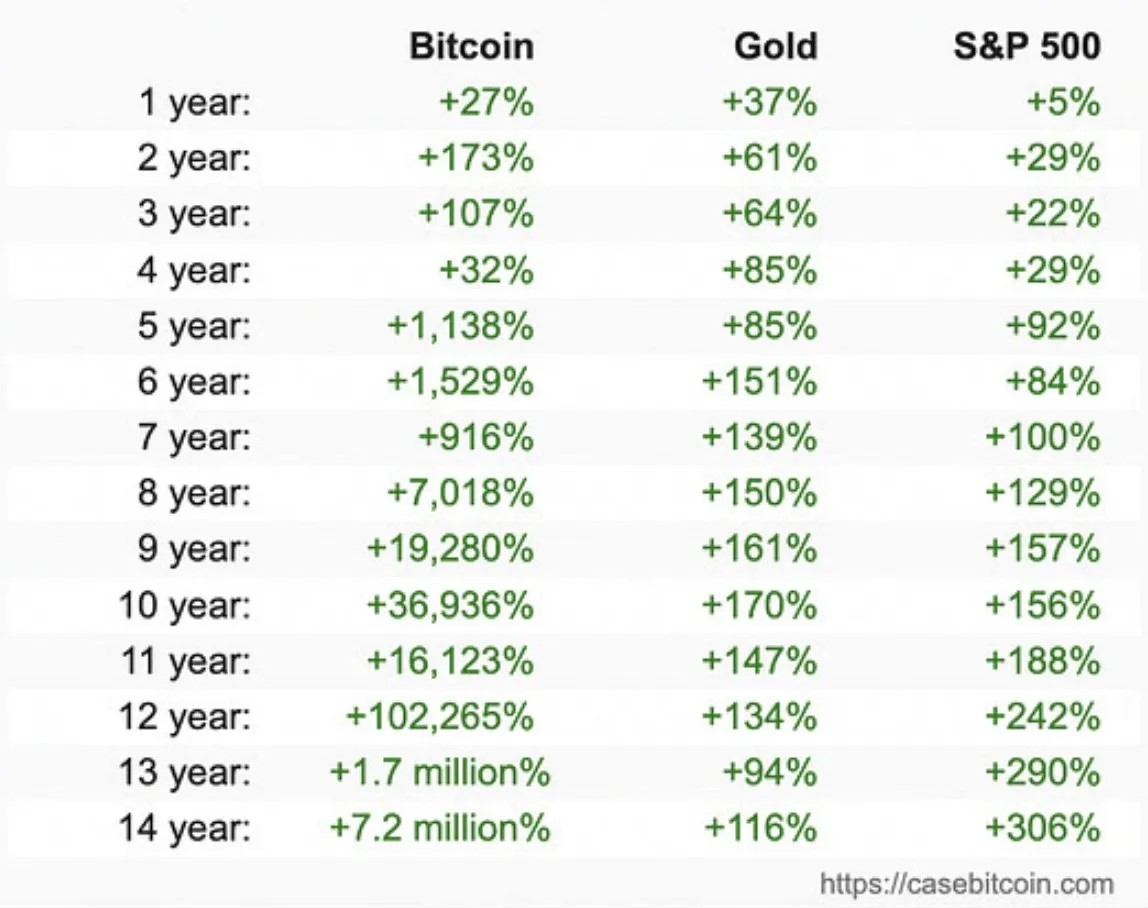
Data also supports this. A recent Bitwise report shows corporations bought over 95,400 BTC in Q1—about 0.5% of all Bitcoin in circulation. That makes it the largest quarter for corporate accumulation on record.
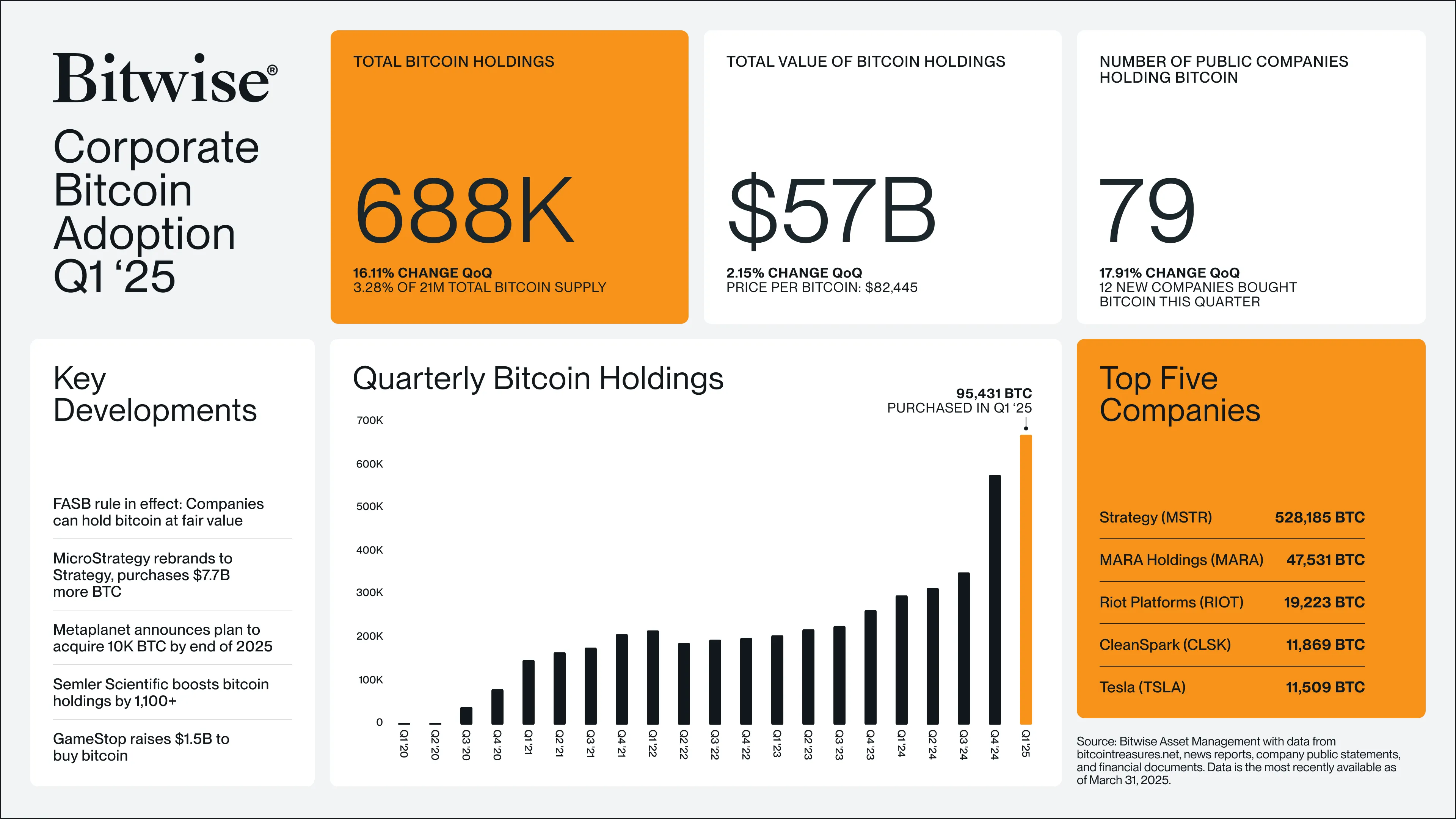
“People want to own Bitcoin. Corporations do too. 95,000 BTC purchased in Q1,” Bitwise CEO Hunter Horsley said.
With rising corporate demand and Bitcoin’s strong performance against traditional assets, the stage may be set for a major rally in summer 2025—driven by peak global liquidity and Bitcoin’s historic tendency to follow gold’s lead.
Disclaimer
In adherence to the Trust Project guidelines, BeInCrypto is committed to unbiased, transparent reporting. This news article aims to provide accurate, timely information. However, readers are advised to verify facts independently and consult with a professional before making any decisions based on this content. Please note that our Terms and Conditions, Privacy Policy, and Disclaimers have been updated.
-

 Market23 hours ago
Market23 hours agoIs The XRP Price Mirroring Bitcoin’s Macro Action? Analyst Maps Out How It Could Get To $71
-

 Altcoin20 hours ago
Altcoin20 hours agoExpert Urges Pi Network To Learn From The OM Crash Ahead Of Open Mainnet Transition
-

 Market20 hours ago
Market20 hours agoBitcoin Price Eyes Bullish Continuation—Is $90K Within Reach?
-

 Market13 hours ago
Market13 hours agoCan Pi Network Avoid a Similar Fate?
-

 Market22 hours ago
Market22 hours agoMANTRA (OM) Charts Look Worse than LUNA – No Buying Activity
-

 Market21 hours ago
Market21 hours ago$7 Million Hack Hits Binance-Backed Project
-

 Market18 hours ago
Market18 hours agoTrump’s Tariffs Spark Search for Jerome Powell’s Successor
-

 Market16 hours ago
Market16 hours agoXRP Price Could Regain Momentum—Is a Bullish Reversal in Sight?








